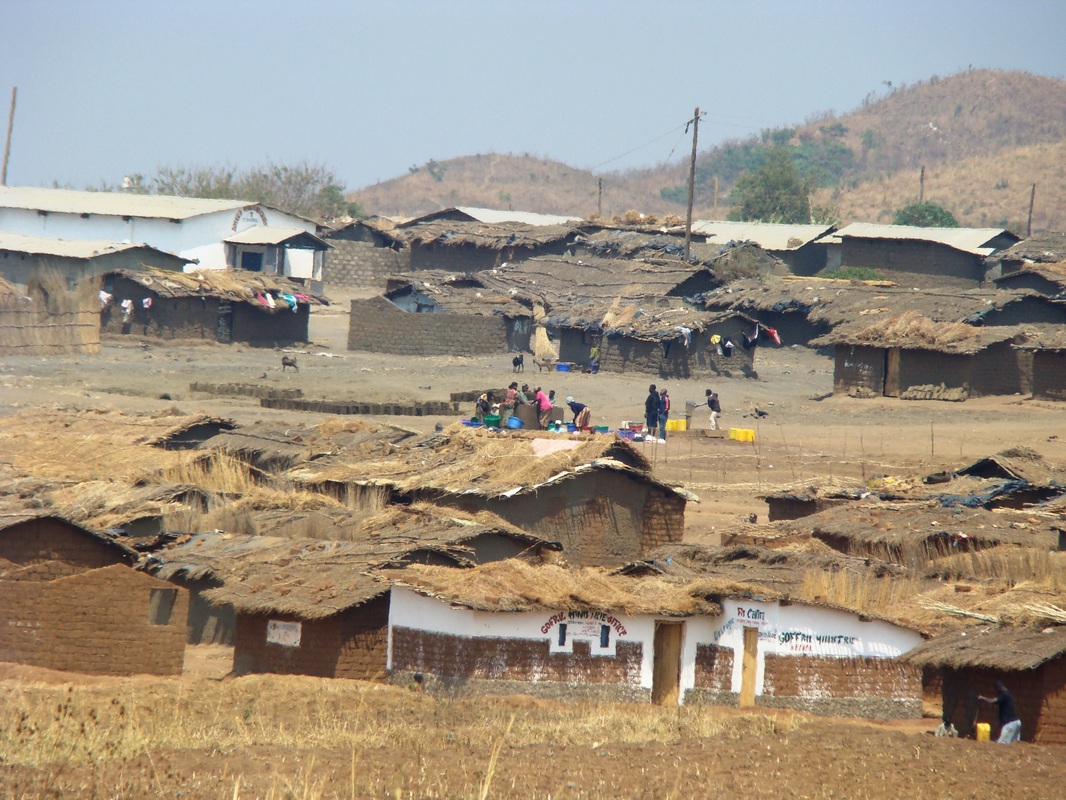|
Ok, let’s strip away all the fun stuff of this placement. My family keeps on commenting on the many vacations I seem to be taking, and asking whether I actually have a job.
In all honesty, working in a refugee camp is hard. The stories break my heart every day, and when I come home from work and have a blog post to write, retelling those same tragedies doesn’t seem to be a fun way to spend the evening. Whereas, telling you all about the amazing weekend trips that I have the privilege of experiencing is a lot more interesting to me. But, I understand where you all are coming from, so here goes sharing some of the harder stuff. The Umoja women’s craft group is made up of vulnerable women from in the camp. Some of them have lost their families to violence, others have managed to flee with their families. Some of the typical stories involve the loss of a child or plural children, raped and pregnant teenage daughters, abusive husbands, currently kidnapped children, head-hunters looking for families because of their last names, and the common and unrelenting drive to continue with life and do their best to make the future different for their children. They lead a difficult life in the camp – when the rations that the UNHCR gives out equal to about 800 calories/day/person, basic survival comes into question. So, JRS runs the craft group and we do our best to find them markets within which to sell their products, and work with the group to improve their quality and tailor their designs to the market. We are trying to build the leadership within the group so that they can run it themselves, but there are cross-cultural and family rivalries within the group that make handing leadership over to the women a complicated process. The special needs class that I work with is also comprised of hard stories. During the home visits when the teachers and I did initial evaluations of the children and learned more about their special needs, we had multiple parents say to our faces, in front of their children, that the kids were worthless and had no value, so why should they go to school? It is extremely rewarding to now see some of those same children learning by leaps and bounds, but the discrimination is still faced at home, and we know that when they leave our classroom, they will most likely go and sit in a dark corner in their home, and wait for the next day that they get to come to class. In comparison to the lives led by the refugees and Malawian subsistence farmers, I have nothing to complain about. Work can move slowly at times - try having an entire segment of your work put on hold because you are waiting for a single piece of paper (for three weeks!), but there is an overload of things to do at JRS, so I'm never sitting around bored. I can get nearly everything that I am used to at various stores in the city, and have an amazing friend circle. I have found a church family that suits me, and am generally just thankful that I get the opportunity to live and work in this country. But there are downsides… there are power cuts a few times a week, which I have learned to deal with and they don’t really bother me anymore… unless I have a pizza half cooked when the power shuts off! I went three days without water last month – and that was difficult – I drink at least 2 litres of water a day, and when you aren’t certain when there will be more water coming out of the taps, it gets a little worrisome. Thankfully, I have the funds to be able to purchase bottled water as needed, so I can work around it, but it is definitely not an enjoyable experience. My poor co-INDEVOUR Anna, who is located in Blantyre, Malawi, experiences much longer in duration and more frequent water and power cuts in her neighbourhood, and I am amazed at her fortitude! Living on an entirely different continent than my family is no walk in the park either. We are seven hours apart and that makes it rather difficult to find a time that works for everyone to skype or have a phone call. When you’ve spent over 20 years living with your parents, not speaking to them for a month at a time is a very strange thing to experience. And trying to explain life in Malawi just doesn’t translate very well. The richness of the culture and land and people is just not expressed well enough through stories and pictures – though I do my best! So, now you have the nuts and bolts of the life I lead. And don’t think that this negative Nelly is here to stay – I love my job and life in Lilongwe, and will hopefully soon have permission to share some more details from my job and happier stories from friends who live in the camp.
2 Comments
|
AuthorWelcome! My name is Katiana and I am a development professional pursuing my dream to live out Isaiah 1:17 to the best of my abilities. I am passionate about teaching and working with vulnerable families and children to improve their lives sustainably.
CaveatThis blog is composed of my personal opinions, which do not necessarily reflect the opinion or views of institutions or organizations that I may be or have been affiliated with.
Categories
All
Archives
July 2017
|



